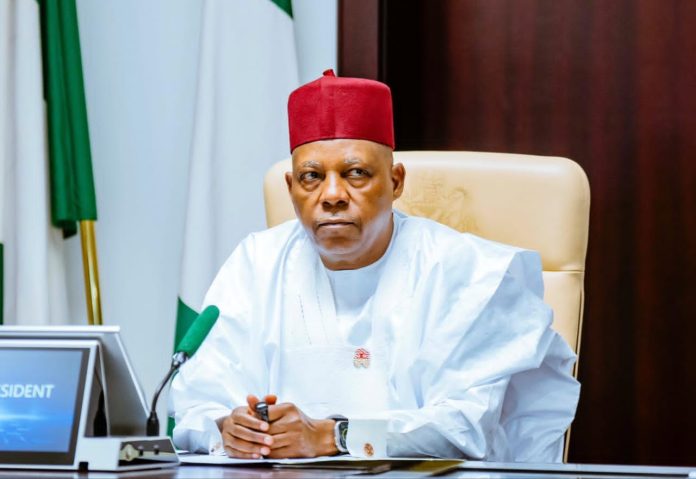The Federal Government, in partnership with the European Union (EU) and the United Nations Development Programme (UNDP), has committed $220 million to the second phase of the Nigeria Jubilee Fellows Programme (NJFP) 2.0.
The initiative aims to equip young graduates with employability skills, mentorship, and hands-on industry experience.
Vice President Kashim Shettima, who launched the NJFP 2.0 at the Presidential Villa in Abuja, described the programme as a strategic investment in Nigeria’s most valuable resource, its youth.
He said the Tinubu administration was determined to institutionalise the initiative within national development frameworks and budgetary plans to ensure its continuity and impact.
“Our immediate goal is to raise $220 million, not as charity, but as an investment in our most valuable asset, our young people,”
Shettima stated, calling on the private sector, development partners, and donor agencies to support the NJFP Basket Fund for long-term sustainability.
Shettima commended the EU and UNDP for their collaboration, noting that the second phase of the programme would prioritise inclusivity and focus on high-impact sectors including agriculture, renewable energy, digital technology, manufacturing, and the creative industries.
He expressed optimism that the expanded version would accelerate Nigeria’s transition to a knowledge-driven economy.
Minister of Youth Development, Ayodele Olawande, said the new phase builds on the success of the first edition, which has benefited more than 13,000 young Nigerians since its inception in 2021.
According to him, NJFP 2.0 targets 100,000 beneficiaries over the next five years, offering them practical industry exposure and access to sustainable employment opportunities.
UNDP Resident Representative, Elsie Attafuah, and EU Ambassador to Nigeria, Gauthier Mignot, both reaffirmed their organisations’ commitment to the initiative, highlighting its potential to connect talent to opportunity.
Also speaking, Chief Executive Officer of Sterling Bank, Abubakar Suleiman, urged continued investment in the programme, noting that millions of Nigerians possess the skills to fill roles often outsourced abroad if properly supported.




